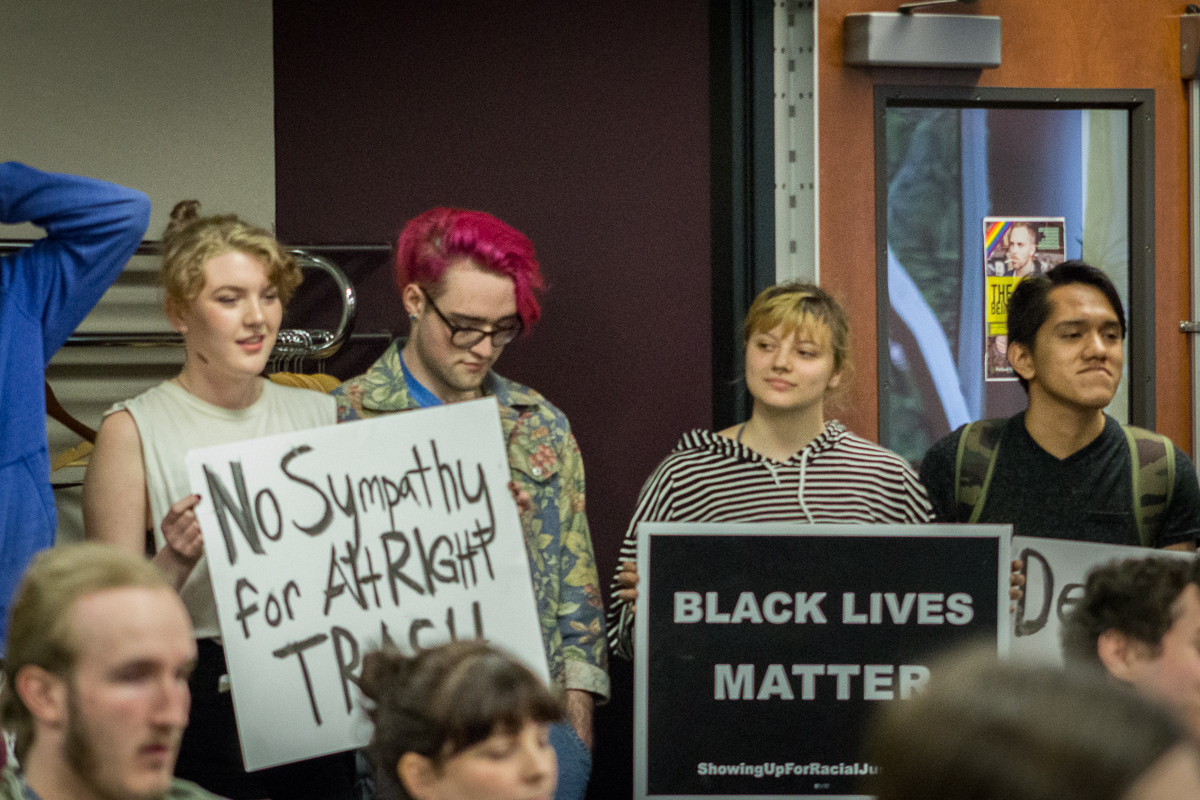Education
What’s Wrong with the American Academy
A colleague of mine in the economics department once said, “when the price of bullshit is zero, demand is inelastic.

A colleague of mine in the economics department once said, “when the price of bullshit is zero, demand is inelastic.” A corollary of this principle is that when the price of bullshit is zero, the supply of bullshit is infinite, especially when there are tangible gains for bullshitters.
Last year, I was a visiting scholar at the University of Arizona, which was in the process of starting a new interdisciplinary department (The Department of Political Economy). About a decade ago, the department chair got a grant from the Koch Foundation, which has donated to several universities around the United States. Because Charles Koch has a libertarian bent—he advocates drug legalization, criminal justice reform, and low taxes, among other things—a number of ‘progressive’ and socialist groups have gone after people who receive grants from the Koch foundation.
My point here is not to make a political statement. I don’t have especially strong feelings about Charles Koch, who I disagree with on some issues, and agree with on others. Instead, I want to use my case to illustrate what’s wrong with the contemporary academy, and with political culture more generally in 2018.
When I arrived in Tucson, I was asked to give a lunchtime talk to other faculty members on a paper in progress. At first, I figured I’d discuss a paper on the overuse of antibiotics in animal agriculture, since I was about to give a lecture in Sweden on this topic. But since a colleague of mine was writing a book on education, I thought I’d try out some ideas for a new paper on the same subject.
The point of my informal talk was to get critical feedback from other faculty, so when the day of the talk had arrived, I was surprised to find a mob of protestors instead of the usual group of grad students and professors. Local political operatives got word of the talk when someone in the philosophy department forwarded an internal email to a group of progressive activists. The activists then used this talk as an excuse to criticize my department for receiving Koch funding many years ago, and then proceeded to make loud statements about public education to the crowd that showed up. Protestors were especially encouraged by an inflammatory blog post by an Arizona activist who misrepresented my paper and made a bunch of bizarre accusations against me.
The blogger described me as a Koch-funded operative (I’m not) who seeks to create right wing lobbyists (I don’t), and who founded Heterodox Academy (I didn’t, but I wish I did). Some of his followers then decided that I was a sexist, racist, Nazi sympathizer who hates the poor. I’m not sure why, but they missed the opportunity for a hat trick by also calling me “Islamophobic.” The protestors were rowdy, so I was told by a colleague that we should cancel the talk and reschedule it for spring.
When I decided to give the talk a few months later, I thought I’d extend an olive branch to the blogger who smeared me. I invited him to attend, and also asked him if he wouldn’t mind removing his original blog post since it contained a bunch of factual errors, quite apart from describing the subject of my talk in a deliberately misleading way. He responded with a single answer to both questions: “No, I will not.” He then ran another hit piece on me, opting to score more political points rather than actually attend the talk and give constructive criticism.

By inviting the blogger to the talk, I made the mistake of believing activists are engaged in an honest search for the truth. When another unhinged blogger linked to his bogus accusations – treating fake news as if it were true – I began to see how reputations can be ruined by a quirk in American law. In the United States, it is permissible to defame people, unless they can afford to hire a lawyer, and that lawyer can prove that they have suffered serious damage as a result of the lies other people tell.
The Progressive Playbook
Apart from the lessons I’ve learned about the American legal system, I experienced first-hand how anti-liberal many progressives on campus have become.
Some political and religious movements have an explicit strategy to advance their interests. Others don’t. But I’ve detected a pattern that might be described as the Progressive Playbook on modern American campuses. Of course, I do not impugn all people who self-describe as progressive, and I don’t doubt that some conservatives also employ dirty tricks. I am here describing a sect within a church that exhibits consistent patterns. For case studies, I recommend a forthcoming documentary, “No Safe Spaces,” along with a new book, The Coddling of the American Mind.
Here is the playbook:
1. Encourage guilt by association. Find a funding source that you don’t agree with, and say that since your opponent is funded by X, there is no point in engaging with their argument. It doesn’t matter if your opponent is actually funded by X – maybe their colleague is, or they co-authored a paper with someone who is. Eventually you will find someone associated with them who is somehow connected to something you disagree with.
2. Play identity politics. If all else fails, point out that your opponent’s argument is predictable given their group membership, like race, sex, or religion. Meanwhile, repeat whatever slogans your group currently sacralizes: disagreeable speech is violence, Islam is a religion of peace, Western civilization is oppressive. Repeat these every day, before your morning cup of coffee, and after you’ve put your cats to bed. It doesn’t matter if they’re true.
3. Stand your ground. Even when there is an earthquake of evidence that seems to threaten your position, do not relent. The weaker your position is, the louder you should shriek. Remember that successful religious cults ask their followers to believe in spite of the evidence, not because of it.
I wish this were a caricature, but I’ve seen the pattern repeated online and on campus.
Reclaiming the Humanities
The reason I decided to study philosophy is that it was a subject, I thought, that encouraged intellectual humility. At its best, philosophy implores each of us to test out bold new ideas, to question everything – especially appeals to authority – and to accept that other people should take you seriously enough to offer counter-arguments rather than empty insults. In the closing remarks to the final debate of his life, Christopher Hitchens said:
To me the offer of certainty, the offer of complete security, the offer of an impermeable faith that can’t give way, is an offer of something not worth having. I want to live my life taking the risk all the time that I don’t know anything like enough yet. That I haven’t understood enough. That I can’t know enough. That I’m always hungrily operating on the margins of a potentially great harvest of future knowledge and wisdom… Those who tell you that you can only live by accepting an absolute authority: don’t think of that as a gift. Think of it as a poison chalice. Push it aside, however tempting it is. Take the risk of thinking for yourself. Much more happiness, truth, beauty, and wisdom will come to you that way.
This is the spirit that brought me into the academy. When pursued with openness and mutual respect, studying subjects in the humanities and social sciences can be liberating. But when they are permeated with a set of political dogmas, they are boring and suffocating.
A few years ago, I invited Jonathan Haidt to give a guest lecture to my PPE (philosophy, politics, and economics) class at Duke University. He asked the students to choose between prioritizing the pursuit of truth and the pursuit of social justice. He did not mean to imply that the two are always incompatible, but rather that, as David Schmidtz recently said, “If your heart is in the right place, you’d better get your facts straight.”






